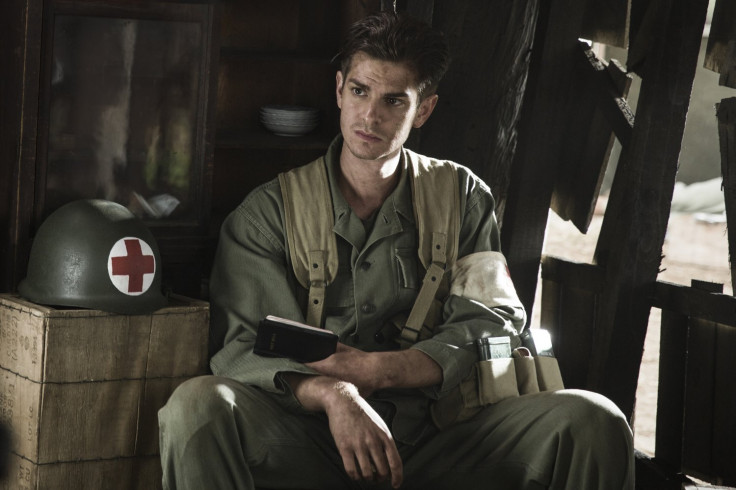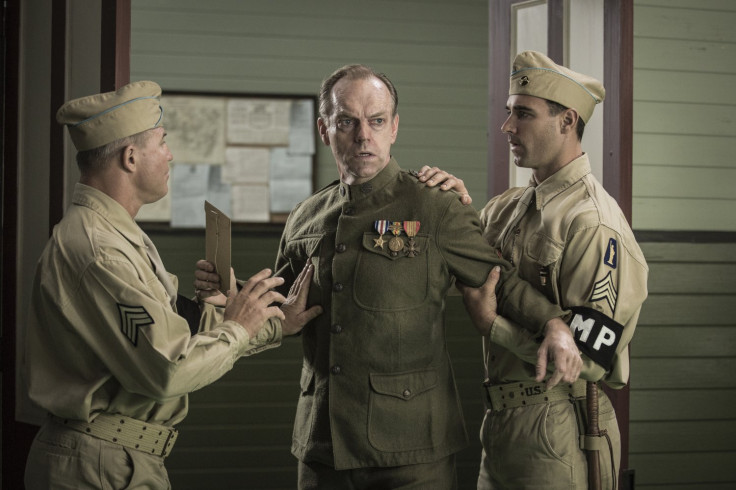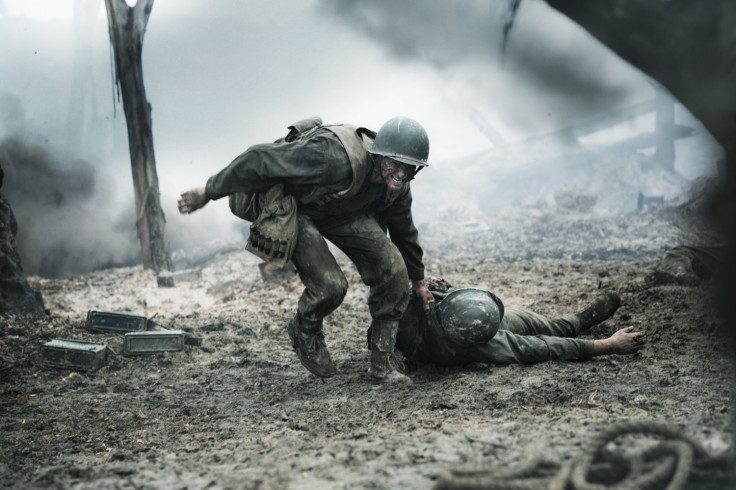Hacksaw Ridge review: Andrew Garfield offers up an Oscar-worthy performance in moving war epic
Vince Vaughn, Sam Worthington, Teresa Palmer and Hugo Weaving also star in the powerful true drama.

Following a decade-long break from working behind the camera, Mel Gibson returns to the director's chair for World War II biopic Hacksaw Ridge. Arming himself with acting talents as strong as Hugo Weaving, Vince Vaughn and a never-better Andrew Garfield, the actor-turned-filmmaker offers up a no-holds-barred look at the horrors of conflict and the hopeful humanity of a man with unwavering morals.
Story and script has always been king when it comes to making a memorable film. As a director, you could have the likes of Tom Hanks, Meryl Streep and other bests of the best acting in your movie, but if its foundations are flawed then it is unlikely to do their talents justice. Of course, films become greats when all of its individual aspects work well together but there's no denying the importance of a good tale and fortunately, with Hacksaw Ridge, Gibson has chosen to tell an exceptional one.
The film tells the story of conscientious objector Desmond Doss, who, plagued with guilt over not serving his country, enlists as a World War II medic and joins the Allied forces' in their assault on Okinawa, Japan. As his unyielding beliefs keep him from brandishing a firearm, Doss resolves to save lives on the battlefield rather than take them, resulting in him risking his life to evacuate the wounded from behind enemy lines when his comrades are forced to momentarily halt the attack.
The story unfolds in three parts; establishing Doss' character and the reasons behind his morals, the troubles he encounters whilst training and the Pacific war battle itself. In its first half – aside from a pretty harrowing moment in its opening scenes – Hacksaw Ridge lulls its audience into a false sense of security. We see Doss become a good-natured young man despite his father's aggressive outbursts and go on to fall for a local nurse (Teresa Palmer), who welcomes his non-violent ways.

We grow to love him along with her, as he delights in their first kiss and takes her on the same hike we saw him and his brother enjoying earlier on. He's an incredibly endearing character, which – combined with Garfield's inherent warmth – makes Hacksaw Ridge a tough-watch and accusations of Doss' cowardice and bloody beatings from fellow soldiers and officers sting. They might not understand his way of thinking but by this point, the audience do and you find yourself wishing you were able to step in and save Doss from this unfair torment. However, it's the troops' invasion of Okinawa that has the film really packing some emotional punches...
Given his past filmography, many might assume that Gibson was a risky choice to direct a war movie. But while there is plenty of gore on display here, there's something to be said of his bravery to depict action sequences this truthfully. Audiences witness the effects explosives and machine guns have on a human body, however, it never once feels gratuitous. Moreover, it emphasises the real-life horror these people had to go through and makes it seem even more incredible that Doss never once fired a shot against his enemies in such a life-threatening and intense environment.
For each blood-soaked moment, there's one of camaraderie, as men are seen trying to ease each other's pain or talking about their women back home. Much like Steven Spielberg's Saving Private Ryan, viewers are given enough time with each character to get to know them (and get to know their nicknames too), which makes Hacksaw Ridge so much more than just war-inspired action movie. We're not just invested in Doss, we also want Vaughn's hot-headed drill sergeant, Sam Worthington's cold captain and Luke Bracey's badass soldier to survive this ordeal too.

Surprisingly, Gibson actually gets a bit carried away in his treatment of Christianity. Despite religion being a undercurrent throughout, featured in brief scenes when Doss is reading his Bible, it can't help but feel a little out of place when its presence suddenly becomes a lot more apparent towards the end of the film. There's no denying that Doss' actions were astonishing but it's presented more of a display of will and the power of the human spirit rather than a miracle for most of the movie and on occasion, Gibson's direction and cinematographer Simon Duggan's shots border on contrived.
Fortunately, Garfield is talent enough to sell his humble hero regardless, presenting Doss as the perfect mix between a young man unsure of his place in the world yet simultaneously self-assured in the compassion he has to offer it. Nailing the accent, his southern drawl and steely yet sweet face can't help but draw you in and have you rooting for him when he resolves to save "just one more."
After an engrossing and visceral final act that never once eases up on the tension and will leave you slack-jawed, Hacksaw Ridge concludes with interviews from the figures depicted in the movie, from Doss' fellow soldiers and superiors to he himself. As text across the screen explains that Doss managed to save 75 men those fateful few days in Okinawa, was awarded the Medal of Honor and the real man talks about his experiences on the battlefield, you're left in awe. While a biopic doesn't usually include such direct nods to the people that it centres on, here, it makes all that you've just watched appear so much more powerful and moving and will have you thinking about it for days after you've seen it.
© Copyright IBTimes 2025. All rights reserved.






















